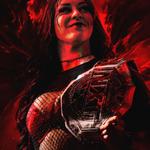 Pandorum schrieb:Ich denke das eher die nicht Mitbeteiligung an einem Kuba-Krieg Kennedys Stellung war. "Wenn denn"
Pandorum schrieb:Ich denke das eher die nicht Mitbeteiligung an einem Kuba-Krieg Kennedys Stellung war. "Wenn denn"
Aber eher andere Motive die nicht sooooo eine Tragweite haben.
Auch können es kleinere Konflikte gewesen sein. Vllt wollte das CIA seine Agenten einsetzen die ausgebildet wurden aber Kennedy verweigerte das usw usw.
Aber ich denke dabei eher an weniger aufreizende Dinge
Ich denke es war ein ganzes Bündel an Motiven- kleinere Konflikte, persönliche Motive, finanzielle Interessen, Unzufriedenheit mit Kennedys Vietnampolitik etc.
Schon vor dem attentat gab es eine Menge Intrigen um Kennedy. Auch bei der Ermordung des südvietnamesischen Präsidenten Diems 3 Wochen vor Kennedys Tod wird das ersichtlich:
Joseph Trento, The Secret History of the CIA, pgs 334-5
<quote on>
Who changed the coup into the murder of Diem, Nhu and a Catholic priest accompanying them? To this day, nothing has been found in government archives tying the killings to either John or Robert Kennedy. So how did the tools and talents developed by Bill Harvey for ZR/RIFLE and Operation MONGOOSE get exported to Vietnam?
Kennedy immediately ordered (William R.) Corson to find out what had happened and who was responsible. The answer he came up with: “On instructions from Averell Harriman…. The orders that ended in the deaths of Diem and his brother originated with Harriman and were carried out by Henry Cabot Lodge’s own military assistant.”Having served as ambassador to Moscow and governor of New York, W. Averell Harriman was in the middle of a long public career. In 1960, President-elect Kennedy appointed him ambassador-at-large, to operate “with the full confidence of the president and an intimate knowledge of all aspects of United States policy.”
By 1963, according to Corson, Harriman was running “Vietnam without consulting the president or the attorney general.”
The president had begun to suspect that not everyone on his national security team was loyal. As Corson put it, “Kenny O’Donnell (JFK’s appointments secretary) was convinced that McGeorge Bundy, the national security advisor, was taking orders from Ambassador Averell Harriman and not the president. He was especially worried about Michael Forrestal, a young man on the White House staff who handled liaison on Vietnam with Harriman.”
At the heart of the murders was the sudden and strange recall of Sagon Station Chief Jocko Richardson and his replacement by a no-name team barely known to history. The key member was a Special Operations Army officer, John Michael Dunn, who took his orders, not from the normal CIA hierarchy but from Harriman and Forrestal.
According to Corson, “John Michael Dunn was known to be in touch with the coup plotters,” although Dunn’s role has never been made public. Corson believes that Richardson was removed so that Dunn, assigned to Ambassador Lodge for “special operations,” could act without hindrance.
http://educationforum.ipbhost.com/index.php?/topic/23713-1963-heroin-cocaine-and-the-assassination/&do=findComment&comment=351854nodoc schrieb:Mir ging es auch eher darum, wie so etwas zustande kommt, wenn bestimmte Organisationen zu viel Macht und Einfluss haben.









